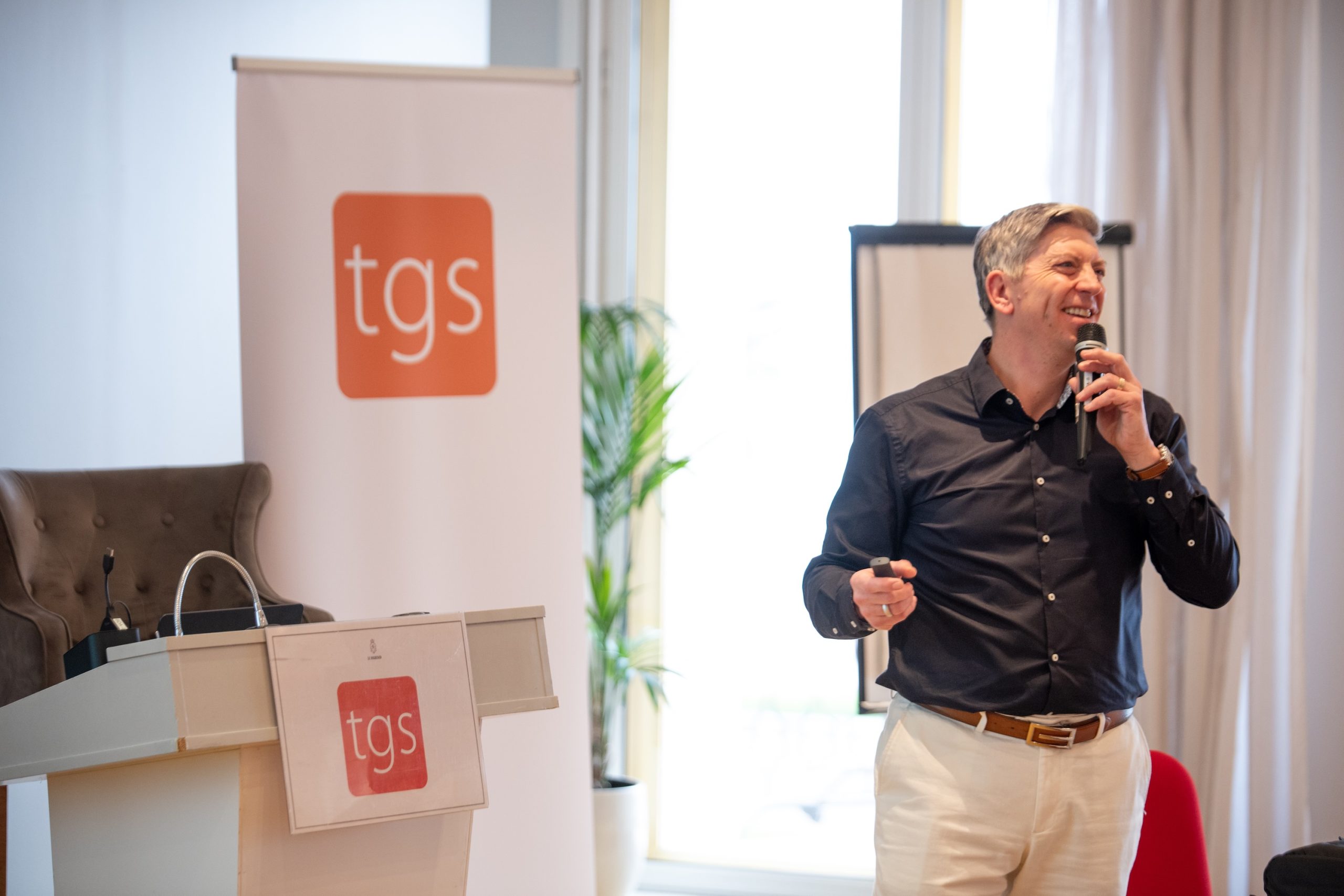09/12/2024
Building succession-ready accounting firms: lessons from the TGS Global conference
Business advisory Events
Jason Langford-Brown helping independent accounting firms build sustainable succession plans
For independent accounting and advisory firms, succession planning presents a unique challenge.
As firms grow from local practices to regional players, traditional approaches to succession—focused primarily on partner retirement and ownership transition—often fail to deliver sustainable results.
At the recent TGS Global Conference in Nice, industry expert Jason Langford-Brown shared insights that are reshaping how forward-thinking firms approach this challenge.
Why Traditional Succession Planning Fails in Accounting Firms
Many accounting firms struggle with succession because they focus exclusively on partner transitions while ignoring organizational foundations. “We see this particularly in firms billing between $5-50 million,” Jason explains. “They have strong technical capabilities but lack the organizational architecture to support next-generation leadership.”
This challenge is especially acute for independent firms competing against larger network firms. Without the right structure and development systems, even firms with strong client relationships and technical expertise can falter during leadership transitions.
The Foundation: Building a Healthy Accounting Practice
TGS member firms that successfully manage succession share common characteristics. They build their organizations around four essential elements:
- Clear Structure: Defined roles and responsibilities beyond partner/manager designations
- Operational Efficiency: Standardized processes that don’t rely on individual expertise
- Performance Management: Metrics that track both financial and operational success
- Talent Engagement: Systems to develop and retain key professionals
The Growth Trap Many Firms Face
A common pattern emerges among growing accounting firms: as revenue increases, profit margins often decline. One UK firm grew from £3 million to £18 million in revenue but saw their 30% profit margin disappear. The cause? An organizational structure that couldn’t efficiently support growth.
This pattern is particularly relevant for TGS members and prospects who aim to grow while maintaining independence. The solution isn’t to avoid growth but to structure for it intelligently.
Creating a Future-Ready Structure
For accounting firms, effective structural planning follows a clear process:
- Map Current State: Document not just partners and managers, but all key functions
- Design Future Structure: Plan for 3-5 years ahead based on strategic goals
- Plan Transitions: Create phases that align with firm growth and capabilities
- Focus on Functions: Define roles based on firm needs, not current staff
TGS member firms can leverage network resources and peer experiences to accelerate this process, learning from firms that have successfully navigated similar transitions.
The People Grid: A Practical Tool for Accounting Firms
The People Grid has emerged as a powerful succession planning tool for accounting practices. It helps firms:
- Track readiness for key roles, especially at partner level
- Identify development needs for future leaders
- Plan for emergency transitions
- Make objective decisions about external hiring needs
Importantly, the grid encourages honesty about succession gaps. “It’s better to acknowledge we need to recruit externally than to promote someone who isn’t ready,” notes one TGS member firm leader.
Development Beyond Technical Training
While technical expertise remains crucial, successful accounting firms are broadening their development approach using the 70-20-10 model:
- 70% structured experience through client work and internal projects
- 20% mentoring and feedback, often leveraging cross-firm relationships
- 10% formal training in both technical and leadership skills
TGS member firms can particularly benefit from network resources for the 20% component, accessing mentoring and feedback across international borders.
Practical Steps for TGS Members and Prospects
- Assess Your Structure:
- Review your current organizational chart
- Design your ideal future structure
- Identify gaps between current and future states
- Build Your People Grid:
- Map key roles and current holders
- Identify potential successors
- Plan development needs
- Consider cross-border opportunities within TGS
- Leverage Network Resources:
- Share experiences with peer firms
- Access international mentoring opportunities
- Participate in TGS leadership development initiatives
- Learn from successful transitions within the network
The TGS Advantage
For independent accounting firms, network membership provides crucial advantages in succession planning. Access to peer experiences, international perspectives, and shared resources can accelerate the development of both organizations and individuals.
The message for ambitious independent firms is clear: successful succession requires building succession-ready organizations. Through TGS membership, firms can access the tools, insights, and peer support needed to create sustainable, transferable practices that thrive across generations.
As one TGS member concluded, “Network membership doesn’t just help with succession planning—it fundamentally changes how we think about building our firm’s future.”
Ready to build a succession-ready accounting firm?
Contact TGS Global to learn how membership can accelerate your succession planning through peer networking, international resources, and proven frameworks.



